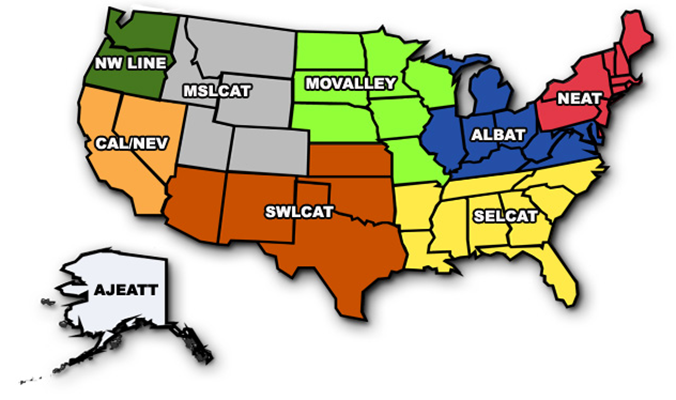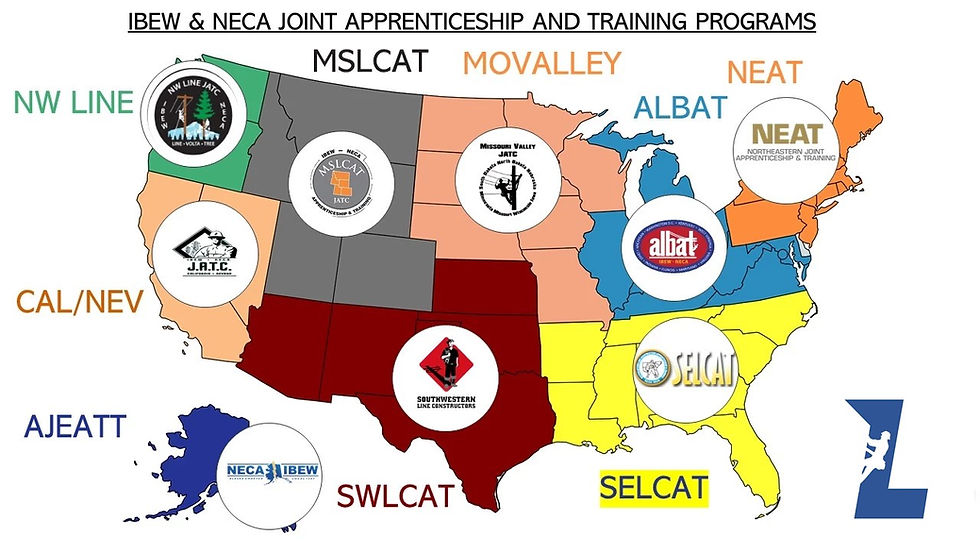The IBEW Lineman Apprenticeship is a program that trains aspiring electricians. It combines classroom instruction with hands-on field training.
The IBEW Lineman Apprenticeship offers a comprehensive training program for those seeking a career as an electrician. Trainees receive a blend of theoretical knowledge and practical experience, ensuring they are well-prepared for the demands of the job. The curriculum covers essential topics such as electrical theory, safety procedures, and equipment handling.
Participants also gain real-world experience through supervised fieldwork. This hands-on approach enhances their skills and confidence, making them proficient in the trade. Graduates of the program are highly sought after and often enjoy rewarding careers in the electrical industry. The apprenticeship is a stepping stone to a stable and lucrative profession.
Introduction To Ibew Lineman Apprenticeship
The IBEW Lineman Apprenticeship offers a unique opportunity. It allows individuals to become professional linemen. This program is rigorous and rewarding. It equips trainees with valuable skills. These skills are essential for maintaining and repairing power lines. It also ensures a steady career in the electrical industry.
What Is Ibew?
The International Brotherhood of Electrical Workers (IBEW) is a labor union. It represents electrical workers in the United States and Canada. Founded in 1891, it has a rich history. IBEW focuses on improving working conditions. It also aims to ensure fair wages for its members.
IBEW offers various apprenticeship programs. These programs include the Lineman Apprenticeship. The goal is to train skilled workers. This helps meet the demands of the electrical industry. IBEW provides excellent training and support. It prepares apprentices for a successful career.
Role Of A Lineman
A lineman plays a crucial role in the electrical industry. They are responsible for maintaining power lines. They also repair and install new lines. Linemen ensure that electricity reaches homes and businesses. Their work is essential for daily life.
- Maintenance: Regular checks on power lines.
- Repair: Fixing any damage to the lines.
- Installation: Setting up new power lines.
- Safety: Ensuring all work is done safely.
Linemen work in various conditions. They may work in bad weather or at great heights. Their job requires physical strength and technical skills. Training through the IBEW Lineman Apprenticeship is essential. It ensures they are prepared for these challenges.
| Task | Description |
|---|---|
| Maintenance | Regular inspections and upkeep of power lines. |
| Repair | Fixing damaged or faulty lines. |
| Installation | Setting up new power lines and equipment. |
| Safety | Following safety protocols to prevent accidents. |
Benefits Of Becoming A Lineman
Becoming an IBEW lineman apprentice offers many benefits. This career path provides stability, good pay, and a sense of purpose. Below, we explore some key benefits.
Job Security
One of the primary benefits of becoming a lineman is job security. The demand for skilled workers in the electrical industry is high. Linemen are essential for maintaining and repairing power lines. This ensures that communities have reliable access to electricity.
As a lineman, you will have steady work opportunities. The need for electricity is constant, making your skills invaluable. This career offers long-term employment stability.
Competitive Salary
Another significant benefit is the competitive salary. Linemen earn a good wage, which increases with experience and certifications.
| Experience Level | Average Salary |
|---|---|
| Apprentice | $40,000 – $50,000 |
| Journeyman | $60,000 – $80,000 |
| Master Lineman | $90,000 – $100,000+ |
These figures can vary based on location and union agreements. Overtime opportunities and benefits packages often add to the overall compensation.
Linemen also receive excellent benefits, including health insurance and retirement plans. These perks contribute to financial stability and peace of mind.
- Health Insurance
- Retirement Plans
- Paid Time Off
- Training Opportunities
In summary, becoming an IBEW lineman apprentice offers a stable and well-paying career. The benefits are numerous, making it a wise career choice.
Eligibility Criteria
Becoming an Ibew Lineman Apprentice is an exciting journey. To start this path, you must meet certain eligibility criteria. These criteria ensure you are ready for the challenges ahead.
Age Requirements
To apply, you must be at least 18 years old. This is a strict rule. You must also have a valid ID. This proves your age and identity.
Educational Background
Your educational background is important. You need a high school diploma or a GED. This shows you have basic knowledge.
You must also pass an algebra test. This proves you understand basic math. Math skills are crucial for this job.
| Requirement | Details |
|---|---|
| High School Diploma or GED | Mandatory for all applicants |
| Algebra Test | Must pass with a satisfactory score |
Having additional coursework in physics or electricity is a plus. This knowledge helps you understand the job better.
- High school diploma or GED
- Pass an algebra test
- Additional courses in physics or electricity (optional)
Application Process
The IBEW Lineman Apprenticeship program offers a great career path. The application process is your first step. This section will guide you through the steps, ensuring a smooth experience.
Submitting Your Application
Start by gathering all necessary documents. These include:
- High school diploma or GED
- Official transcripts
- Valid driver’s license
- Resume
Visit the IBEW website to find the application form. Fill it out accurately. Double-check all details before submitting. Submit your application online or at a local IBEW office. Keep a copy for your records.
Entrance Exam
After submitting your application, prepare for the entrance exam. The exam covers:
- Basic math
- Reading comprehension
- Mechanical aptitude
Study guides are available online. Practice tests can also help. On exam day, bring a photo ID. Arrive early to avoid any issues.
| Subject | Topics |
|---|---|
| Math | Algebra, geometry, basic arithmetic |
| Reading Comprehension | Understanding passages, answering questions |
| Mechanical Aptitude | Simple machines, tools, basic physics |
Passing the entrance exam is crucial. It determines your eligibility for the next steps.
Training Program
The IBEW Lineman Apprenticeship offers a comprehensive training program. This program prepares future linemen with essential skills. Trainees gain knowledge through classroom instruction and on-the-job training.
Classroom Instruction
Classroom instruction is a vital part of the apprenticeship. Trainees learn the theory behind electrical systems. They also study safety protocols and industry standards.
- Electrical Theory: Understanding how electricity works.
- Safety Protocols: Ensuring safety on the job.
- Industry Standards: Learning the standards of electrical work.
Instructors provide hands-on demonstrations. This helps trainees understand complex concepts better. Trainees also have access to modern tools and equipment.
On-the-job Training
On-the-job training is equally important. Apprentices work alongside experienced linemen. They apply classroom knowledge in real-world settings.
- Real-World Experience: Hands-on training on actual job sites.
- Mentorship: Guidance from seasoned professionals.
- Skill Development: Building practical skills over time.
Apprentices tackle various tasks like pole climbing and equipment handling. They also learn how to troubleshoot electrical issues. This combination of classroom and practical training ensures a well-rounded education.

Credit: www.linemancentral.com
Skills And Qualities
Embarking on an IBEW Lineman Apprenticeship requires a unique set of skills and qualities. These range from technical abilities to physical fitness, ensuring you can meet the demands of the job. This guide highlights the essential skills and qualities needed to succeed.
Technical Skills
Technical skills are crucial for a lineman. You must understand electrical systems and safety protocols. These skills ensure you can handle complex tasks and work safely.
- Electrical Knowledge: Understand how electrical systems work.
- Safety Protocols: Follow safety guidelines to prevent accidents.
- Equipment Handling: Use tools and machinery correctly.
Learning these skills often involves hands-on training. You will practice with experienced linemen. This helps you gain confidence and improve your abilities.
Physical Fitness
Physical fitness is essential for linemen. The job involves climbing poles and lifting heavy equipment. You need strength and endurance to perform these tasks safely.
| Fitness Requirement | Description |
|---|---|
| Strength | Lift and carry heavy tools and materials. |
| Endurance | Work long hours in various weather conditions. |
| Agility | Climb poles and navigate difficult terrain. |
Maintaining good physical health is important. Regular exercise and a balanced diet can help you stay fit for the job. Physical fitness ensures you can perform your duties effectively and safely.
Career Advancement Opportunities
The IBEW Lineman Apprenticeship offers many career advancement opportunities. Graduates can climb the career ladder quickly. They have options to become journeyman linemen or take on supervisory roles. This ensures a fulfilling and prosperous career.
Journeyman Lineman
Becoming a Journeyman Lineman is a significant milestone. It opens doors to higher pay and more responsibilities. These skilled professionals work on complex electrical systems. They ensure safe and reliable power distribution.
Journeymen often work on high-voltage power lines. They also handle maintenance and emergency repairs. Their expertise keeps the power grid running smoothly.
Here are some key benefits of becoming a Journeyman Lineman:
- Higher salary
- Increased job security
- More complex and rewarding tasks
Supervisory Roles
For those seeking leadership positions, Supervisory Roles are available. These roles involve managing teams of linemen. Supervisors ensure projects are completed safely and on time. They also handle administrative tasks and training new apprentices.
Supervisors play a crucial role in project planning. They coordinate with other departments and ensure compliance with safety regulations. This role is ideal for those with strong leadership skills.
Key responsibilities of Supervisory Roles include:
- Team management
- Project planning
- Safety compliance
These career paths offer growth and stability. They make the IBEW Lineman Apprenticeship a valuable choice for aspiring electricians.

Credit: www.reddit.com
Testimonials From Apprentices
The IBEW Lineman Apprenticeship has transformed many lives. Hear from those who have walked this path. Their stories inspire and inform future apprentices.
Success Stories
John Doe started as an apprentice with no experience. Today, he is a lead lineman. He shares, “The training was tough, but worth it. I learned skills and gained confidence.”
Jane Smith had always dreamt of working with electricity. She states, “The apprenticeship program provided hands-on training. I now have a stable career.”
| Apprentice | Success Highlight |
|---|---|
| Mike Johnson | Promoted to Team Leader in 3 years. |
| Emily Davis | Received Safety Excellence Award. |
Challenges Faced
Apprentices face many challenges during their training. These obstacles help them grow.
Robert Brown mentions, “Balancing work and study was hard. But support from mentors helped me.”
Lisa White shares, “The physical demands were intense. Over time, my strength and endurance improved.”
- Long working hours
- Complex technical concepts
- Physical strain
Despite these challenges, many apprentices succeed. Their resilience and determination set them apart.

Credit: electricaltrainingalliance.org
Frequently Asked Questions
What Is The Best Union For Lineman?
The best union for linemen is the International Brotherhood of Electrical Workers (IBEW). It offers strong support, training, and benefits.
How To Become A Lineman Step By Step?
To become a lineman, follow these steps: 1. Earn a high school diploma or GED. 2. Complete a pre-apprenticeship program. 3. Enroll in an apprenticeship. 4. Gain on-the-job training and experience. 5. Obtain necessary certifications.
How To Become A Lineman In Il?
To become a lineman in Illinois, complete high school, attend a lineman training program, and secure an apprenticeship. Obtain necessary certifications and gain field experience. Apply for lineman positions with utility companies.
How To Become A Lineman In Indiana?
To become a lineman in Indiana, complete high school, attend a lineman training program, and obtain CPR certification. Apply for apprenticeships, gain on-the-job experience, and pass the journeyman exam.
Conclusion
Choosing the IBEW Lineman Apprenticeship opens doors to a rewarding career. This program offers hands-on training and mentorship. Graduates enter the workforce with valuable skills and experience. Start your journey today and power up your future with the IBEW Lineman Apprenticeship.

